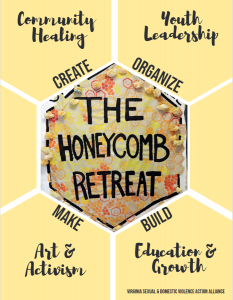Resources Library: Multidisciplinary
Start a Search:
Highlights from the Revised FVPSA Regulations for Advocates and Programs Serving LGBTQ Survivors
Revised rules and regulations regarding the FVPSA program have taken effect.
The Family Violence Prevention and Services Act program provides federal funds to states for distribution to DV and SA programs. Most DV programs receiving state funds also receive FVPSA funds. The FVPSA regulations set forth important parameters, limits and requirements for FVPSA funded programs. These regulations impact survivors on a day to day level.
FVPSA program office undertook a careful and collaborative process of updating regulations to reflect what the field has learned about the needs and realities of DV survivors as well as the DV movement’s and Federal Government’s commitment to meaningful and accessible services for DV survivors and their children.
Changes include improvements and clarifications related to access to DV advocacy and shelter for LGBTQ survivors.
HIV trends in Virginia 2014 - 2018 - Report
The Division of Disease Prevention produces quarterly and annual reports on HIV Surveillance data, and also produces an Epidemiology Profile of those living with HIV that is updated annually with data on key populations affected by the disease.
These reports can be found here on the VDH website (Data and Reports box)
If additional data are needed, please contact VDH directly to discuss.
The Centers for Disease Control (CDC) also has a number of reports available at their site, with state-level and national data on HIV surveillance. These can be found here.
Homicide-Suicide in Virginia 2006-2010: Who is at risk?

The Office of the Cheif Medical Examiner released a new report in June, 2013, titled Homicide-Suicide in Virginia 2006-2010: Who is at risk? This report utilizes 2006 to 2010 data from the Family and Intimate Partner Homicide Surveillance Project to answer these questions: who is most at risk for domestic violence related homicide-suicide; and, what relationship characteristics create the most danger for homicide-suicide? This and other reports from the Family and Intimate Partner Homicide Surveillance Project can be found here.
Homicide: An Analysis of Homicide in Virginia Among Those 50 Years or Older, 1999 – 2007
A brief article examining intimate partner homicide in people age 50 or older which considers the following questions: (1)what were the characteristics of persons 50 years of age or older who were killed as a result of intimate partner discord or violence and (2) what were the circumstances surrounding intimate partner homicide events in which decedents were persons 50 years of age or older?
Published by: Virginia Department of Health, Office of the Chief Medical Examiner. June, 2010. 14 pages.
Honeycomb Reflection and Share Out

In July 2019 the Action Alliance organized and hosted a week-long retreat for young advocates, activists, and artists ages 17-23 called the Honeycomb Retreat. Our participants (fellows) went to workshops on systemic and interpersonal violence, consensual communities, zines for visionary futures, and using herbalism practices to heal from trauma. They also went to art sessions during which they worked with local artists-in-residence to create art in response to the things they were learning in their workshop and their own personal experiences. The week ended with a visioning session where fellows had the opportunity to talk about their skills they bring to our movement, the barriers that impact their full participation, the resources and support they need from adult allies, and what they are excited to do next!
This is an informational and reflective zine that describes some of our goals, frameworks, and outcomes—as well as a general overview of what happened at the retreat and who was there. Please do not hesitate to reach out and connect on these topics!

